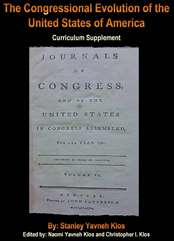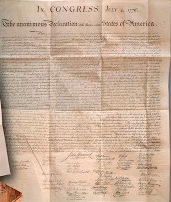Image Use

Please join us in our mission to incorporate The Congressional Evolution of the United States of America discovery-based curriculum into the classroom of every primary and secondary school in the United States of America by July 2, 2026, the nation’s 250th birthday. , the United States of America: We The
People.
Click Here
Historic Documents
Articles of Association
Articles of Confederation 1775
Articles of Confederation
Article the First
Coin
Act
Declaration of Independence
Declaration of Independence
Emancipation Proclamation
Gettysburg Address
Monroe Doctrine
Northwest Ordinance
No
Taxation Without Representation
Thanksgiving Proclamations
Mayflower Compact
Treaty of Paris 1763
Treaty of Paris 1783
Treaty of Versailles
United Nations Charter
United States In Congress Assembled
US
Bill of Rights
United States Constitution
US
Continental Congress
US
Constitution of 1777
US
Constitution of 1787
Virginia Declaration of Rights
Historic Events
Battle of New Orleans
Battle of Yorktown
Cabinet Room
Civil
Rights Movement
Federalist Papers
Fort
Duquesne
Fort
Necessity
Fort
Pitt
French and Indian War
Jumonville Glen
Manhattan Project
Stamp
Act Congress
Underground Railroad
US
Hospitality
US
Presidency
Vietnam War
War
of 1812
West
Virginia Statehood
Woman
Suffrage
World
War I
World
War II
Is it Real?

Declaration of
Independence
Digital Authentication
Click Here
America’s
Four Republics
The More or Less United States
Continental
Congress
U.C. Presidents
Peyton Randolph
Henry Middleton
Peyton Randolph
John Hancock
Continental
Congress
U.S. Presidents
John Hancock
Henry Laurens
John Jay
Samuel Huntington
Constitution of 1777
U.S. Presidents
Samuel Huntington
Samuel Johnston
Elected but declined the office
Thomas McKean
John Hanson
Elias Boudinot
Thomas Mifflin
Richard Henry Lee
John Hancock
[Chairman
David Ramsay]
Nathaniel Gorham
Arthur St. Clair
Cyrus Griffin
Constitution of 1787
U.S. Presidents
George Washington
John Adams
Federalist Party
Thomas Jefferson
Republican* Party
James Madison
Republican* Party
James Monroe
Republican* Party
John Quincy Adams
Republican* Party
Whig Party
Andrew Jackson
Republican* Party
Democratic Party
Martin Van Buren
Democratic Party
William H. Harrison
Whig Party
John Tyler
Whig Party
James K. Polk
Democratic Party
David Atchison**
Democratic Party
Zachary Taylor
Whig Party
Millard Fillmore
Whig Party
Franklin Pierce
Democratic Party
James Buchanan
Democratic Party
Abraham Lincoln
Republican Party
Jefferson Davis***
Democratic Party
Andrew Johnson
Republican Party
Ulysses S. Grant
Republican Party
Rutherford B. Hayes
Republican Party
James A. Garfield
Republican Party
Chester Arthur
Republican Party
Grover Cleveland
Democratic Party
Benjamin Harrison
Republican Party
Grover Cleveland
Democratic Party
William McKinley
Republican Party
Theodore Roosevelt
Republican Party
William H. Taft
Republican Party
Woodrow Wilson
Democratic Party
Warren G. Harding
Republican Party
Calvin Coolidge
Republican Party
Herbert C. Hoover
Republican Party
Franklin D. Roosevelt
Democratic Party
Harry S. Truman
Democratic Party
Dwight D. Eisenhower
Republican Party
John F. Kennedy
Democratic Party
Lyndon B. Johnson
Democratic Party
Richard M. Nixon
Republican Party
Gerald R. Ford
Republican Party
James Earl Carter, Jr.
Democratic Party
Ronald Wilson Reagan
Republican Party
George H. W. Bush
Republican Party
William Jefferson Clinton
Democratic Party
George W. Bush
Republican Party
Barack H. Obama
Democratic Party
Please Visit
Forgotten Founders
Norwich, CT
Annapolis Continental
Congress Society
U.S. Presidency
& Hospitality
© Stan Klos



























































